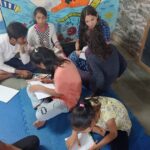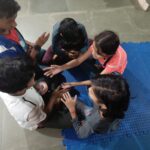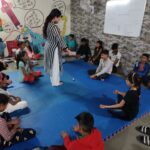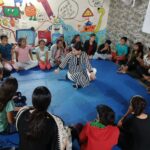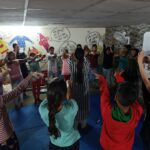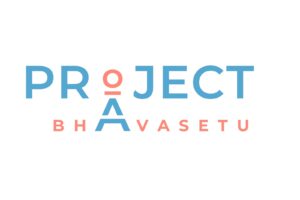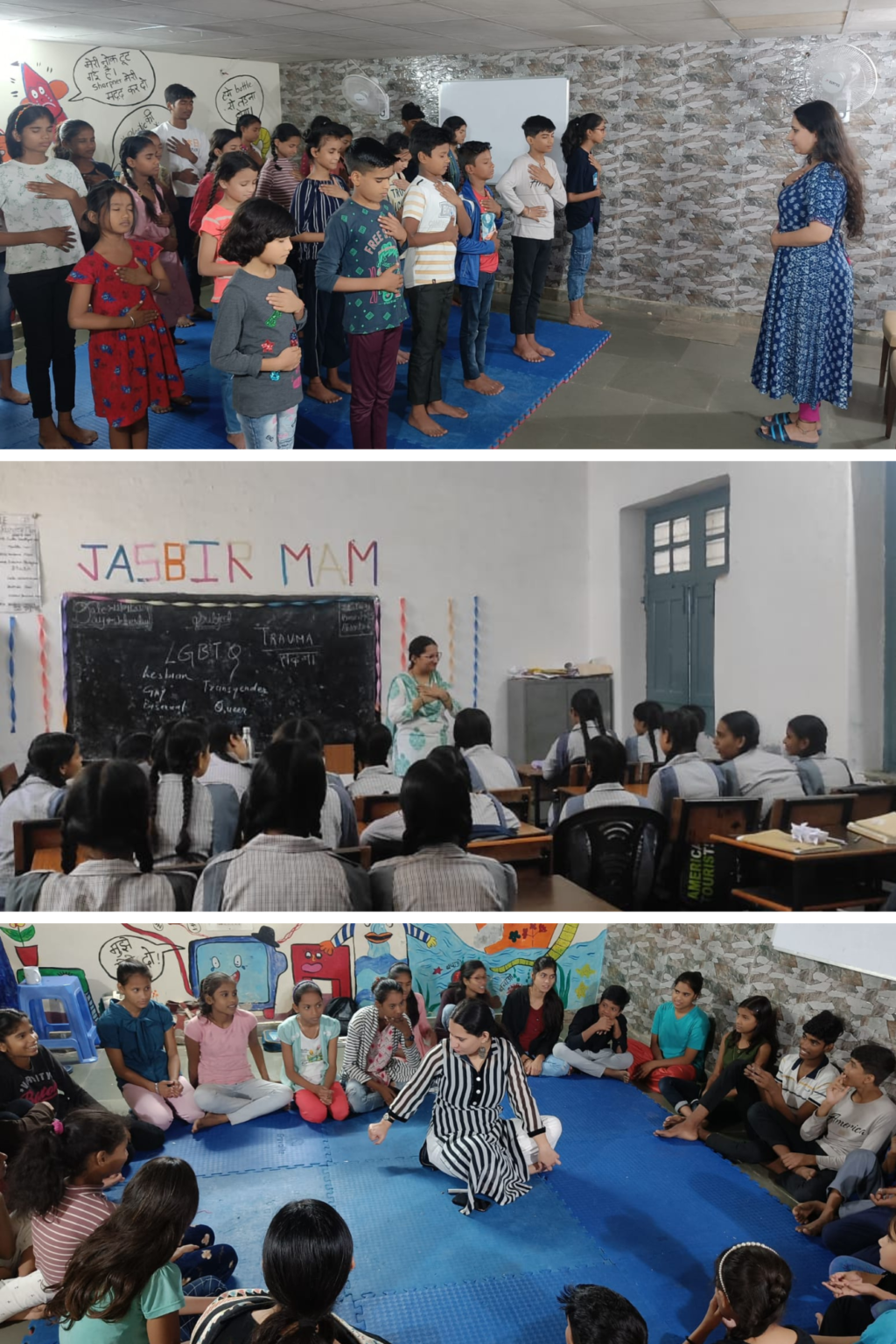
A Compassionate Psychosomatic Approach to Trauma and Emotional Health in Children at Child Care Institutions:
Project Bhāvasetu
Background and Need
Children in Child Care Institutions (CCIs) often face unique emotional challenges. The Living Consciouslyy Foundation (LCF) emerged from its founders research on children in need of care and protection, revealing opportunities to enhance emotional support for these young individuals. The Adverse Childhood Experiences (ACE) study has shown that early difficult experiences can have lasting effects on emotional regulation and overall well-being. Children in CCIs may have faced multiple challenges that can impact their psychological and physiological development. Initially, LCF developed the Wholeness Program, offering workshops on emotional health for children in shelter homes. Building on this success, Project Bhavasetu has evolved as a comprehensive model designed to further support the emotional health of children in CCIs. Project Bhavasetu aims to complement existing care practices within CCIs by introducing additional tools and techniques that promote emotional well-being and resilience. It focuses on helping children develop self-regulation skills and emotional literacy, essential for long-term well-being and social integration.
Understanding Trauma in the Context of Child Care Institutions
Understanding Emotional Challenges in the Context of Child Care Institutions, Children in CCIs may face various emotional challenges due to factors such as:
- Adjustment to new environments
- Separation from familiar surroundings
- Uncertainty about the future
- Limited individual attention due to high child-to-caregiver ratios
- Peer relationships in group living situations
The Impact of Trauma on Child Development
Trauma experienced in childhood can have profound and long-lasting effects:
1. Neurological impact: Trauma can alter brain structure and function, particularly in areas related to stress response and emotional regulation. This can lead to an overactive stress response system, making children more reactive to perceived threats.
2. Emotional and behavioral challenges: Traumatized children often struggle with emotional regulation, leading to outbursts, withdrawal, or difficulty forming healthy relationships.
3. Cognitive impairment: Trauma can interfere with cognitive development, affecting learning abilities, memory, and attention span.
4. Physical health: Chronic stress from trauma can weaken the immune system and increase the risk of various health problems later in life.
5. Mental health vulnerabilities: Childhood trauma is strongly correlated with increased risk of mental health issues in adulthood, including depression, anxiety, and PTSD.
The Need for Enhanced Emotional Support in CCIs Traditional approaches to childcare in CCIs often fail to address the unique needs of traumatized children.
There is a critical need for trauma-informed care that:1. Recognizes the prevalence and impact of trauma and difficult experiences on children
2. Provides additional tools and techniques for emotional regulation and stress management.
3. Creating a safe and nurturing environment that promotes healing and resilience.
4. Equipping caregivers with additional knowledge and skills to support children effectively.
5. Addressing the mind-body connection in trauma healing through holistic approaches.
Help our Supporting Organization to Raise funds for Project Arukah:
Arukah Project:
Project Arukah is a pioneering initiative dedicated to empowering vulnerable individuals to break free from cycles of incarceration and addiction. With a mission to help people manage their emotional responses to challenging situations, Arukah envisions a world where everyone understands the lasting impact of childhood trauma and possesses the tools to create positive, lasting change. The projects approach is firmly rooted in understanding the profound effects of trauma and Adverse Childhood Experiences (ACEs) on high-risk behaviors, recognizing that trauma induces real physiological changes in the brain.
Working alongside prisons, probation services, addiction recovery centers, schools, and intervention services across the UK, Arukah provides education, training, and therapeutic expertise. The project employs a comprehensive emotional health and well-being framework that combines awareness-raising, education, and skill-building. Arukah offers a blend of experiential learning and practical teaching, focusing on somatic techniques such as Trauma Tapping Technique (TTT), Emotional Freedom Techniques (EFT), and Self Havening. These simple yet effective techniques form a personal toolkit for self-soothing, anxiety reduction, and emotional regulation, aiming to transform lives and break the cycle of trauma-induced behaviors.


